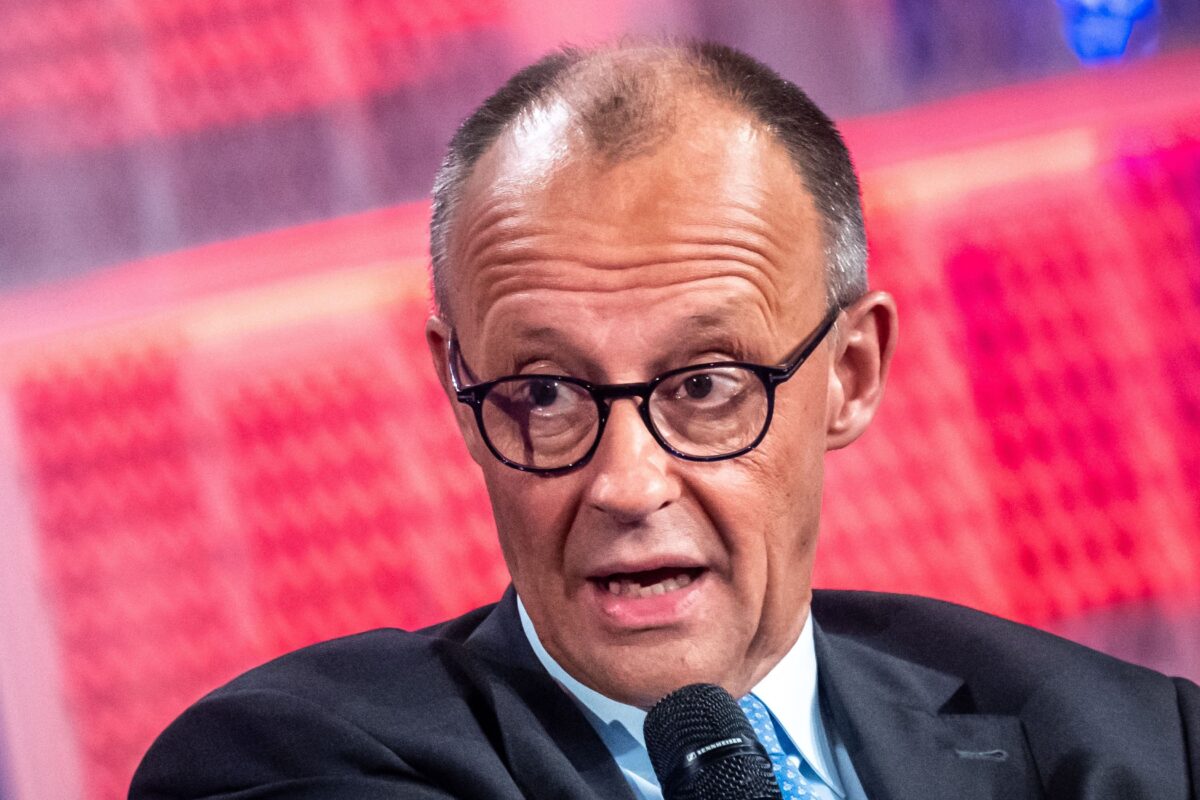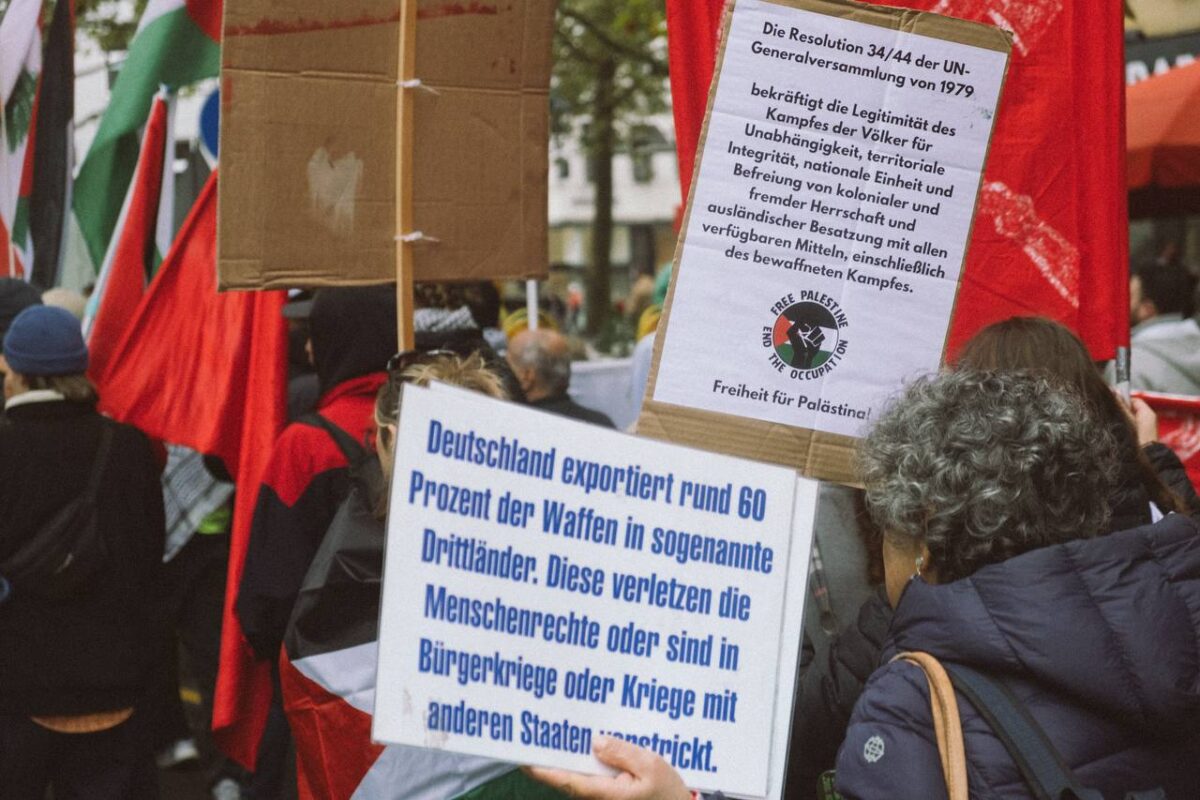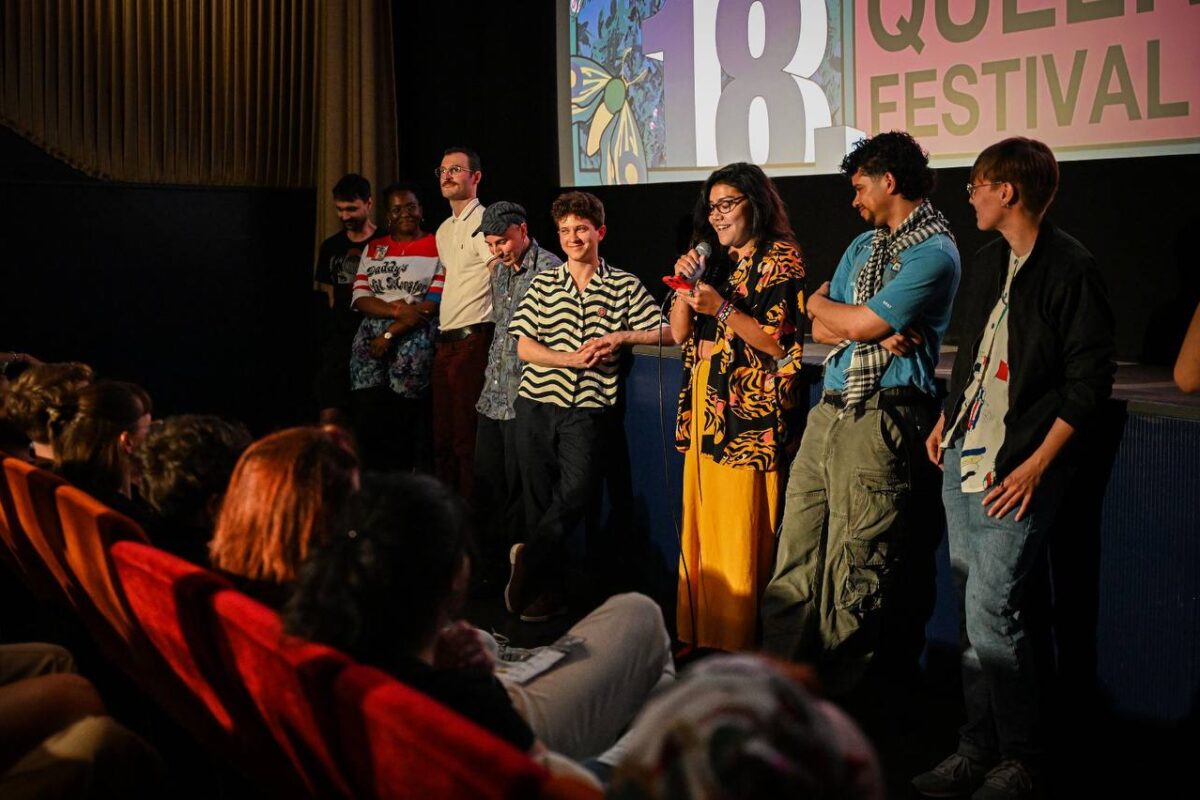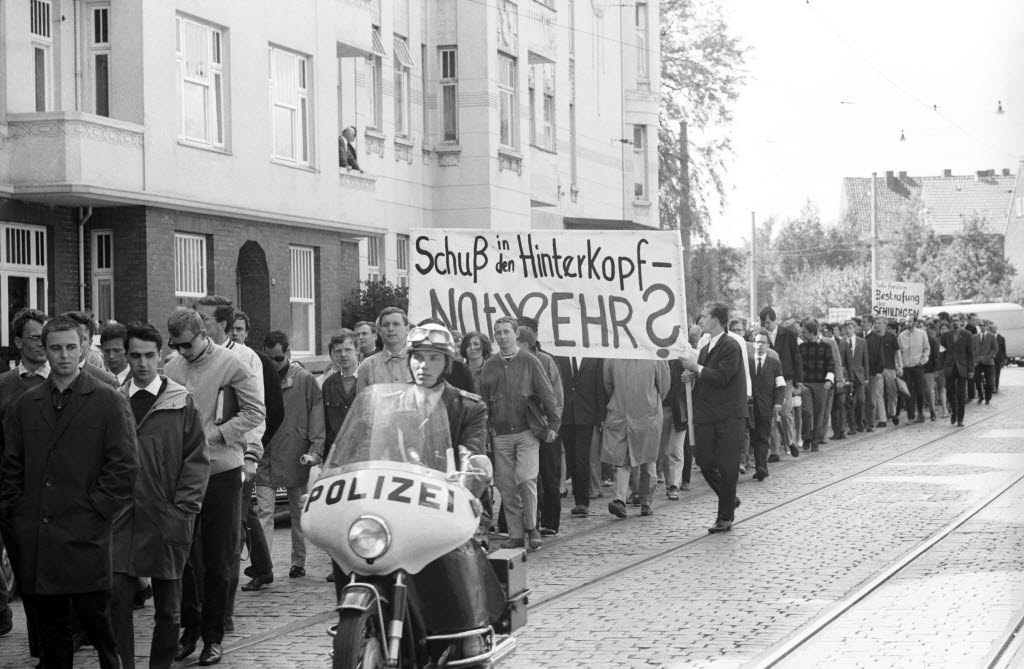Could you start by telling our readers about yourself and your background?
I’m David. I grew up in Germany, and my family is from Ukraine. I moved to Scotland for my film and theatre studies degree at university, and now I have come back to Germany this year for a job, but also to see how Germany has changed, if at all. My job is in political education with a small organisation, but while doing my studies, I started working at film festivals and finding out what felt right for me. I’m slowly understanding that I like to curate, so I’m still new to that, but I’m coming into a routine and trying to expand what it means to be a curator and learning how to do it.
You are one of the programmers at the XPOSED Queer Film Festival Berlin—can you tell us more about the festival and what the vision is?
The festival started in 2006; this will be the 19th edition. It started as a passion project by a couple of people here in Berlin—which it still is to date. I would consider us to be a collective of queer people who either live in Berlin, are tied to Berlin somehow, or are simply tied to the festival, who come together every year to organise it. Many of us are migrants; some of us grew up in Germany, but we face different layers of discrimination here. It’s a political festival because we are people who are affected by politics in this country. As a festival, we try to show different perspectives of what it means to be queer, but also what queerness could be—not only tied to sexuality or gender but also to what convention society has and how queerness goes against that and tries to dismantle it. We try to show global perspectives of queerness, so we try to involve many different views of what it means to be queer in this world. Whether that is successful, that’s always debatable.
How would you define queerness or queer cinema?
At the moment, we have five curators, and we all work together to curate the programme. All of us have different ways of defining queerness for ourselves, so it’s enriching when we watch films and discuss together if they fit the festival or not. We often discuss a film and say, “This is so XPOSED”. I guess at this point, we have a sort of style, something you can expect, and the overlap is about imagining film outside of what’s on the mainstream. There are many ways of what queerness could be—one is that we want to see stories of queerness told by queer people. Very few of our films, if any, are made by non-queer filmmakers—our focus is not only on the director but if it’s a queer production. Sometimes you can sense how people have worked—you can tell if it was queer inclusive, rather than just pink-washing. Often, we are in touch with filmmakers whose work we know already and keep track of, so that’s how we get a feeling for whether they actually practice what they put into the film. At the same time, queerness doesn’t have to be in the topics of the films; it can be about the form. Very rarely do we take something that follows an Aristotelian arch. It’s more about playing with form, with convention, and then just destroying that. There are very original films that provoke us to see something for the very first time in a certain way. That’s what we are usually looking for.
XPOSED screens both features and short films, as well as newer and older films. On your website, it also mentions that you hope that your curatorial choices counteract oppressive structures. Can you say more about the selection process? How do you decide what is a good fit for the festival?
There are two ways in which films get to us: we have open submissions that people can submit for free, and we also do our own research, so the team is always on the lookout not only for what’s going on at festivals, but also in smaller queer productions—including locally, and we like to focus on migrant queer cinema in Berlin. Sometimes, we only need one person watching a film, and they really see why it’s important to give it the space. Very often, it happens that we all agree. It can be that there is a topic that is important at the moment to give certain people a voice, and in those cases it needs to be included so that people come to the festival and see a glimpse of what is one way of being queer in that country or region, for example. Even if it’s a 5-minute short, it can already trigger something and move people to imagine what queerness is in that country, to want to know more, and to want to research, and think of ways in which they can show solidarity or support. Sometimes, there are interesting discussions of why someone thinks a certain film is “XPOSED”, and someone else doesn’t agree, but very rarely do we have a strong disagreement. This is because we are all very open to understanding our different positionalities and experiences of how we live in Berlin or elsewhere. We also try to learn from each other and what each curator found in their practice.
The submissions come from many different countries. We try to spread the word as much as possible, but there are many regions from which we do not get submissions from. For those, we wonder if it’s because of the political situation, access to filmmaking, access to finding out about festivals, or even filmmakers not being interested in showing films in Germany.
Since your 20th anniversary is happening soon, when reflecting on the festival, what is the importance of having a film festival dedicated to queerness in a city like Berlin?
There are many other amazing film festivals and venues. I think what XPOSED does well is create a community around the festival, people who look forward to it every year. We also tried to make it more accessible, even though inflation and funding have been difficult. That also makes it harder to claim that we are accessible because it’s this vicious cycle of wanting to be for the queer community but also being queer ourselves and not having the best access to things. We want queer people to see themselves on screen and imagine what their future could be like, but also to irritate people who might disagree if they happen to be at our festival.
Some of the films would struggle to find a spot at a festival, either because there are requirements that are not accessible to short films, or some wouldn’t get picked for their stories, for their aesthetics, or their production budgets. For many people, it’s a big opportunity to be able to premiere in Berlin.
We don’t have a lot of funding to fly people in, but we try to take care of each other by hosting people, offering meals, or even spontaneously hosting a film screening at 10 pm on a Sunday because many people want to watch it. Those are tiny things we can do, but it’s important to connect people who share a struggle and feel they are not alone.
XPOSED receives public funding. At the end of last year, the Berlin Senate announced a 12% cut to the city’s cultural budget. The campaign Berlin Ist Kultur was created in response, to protest it. What are your thoughts on that?
I am still trying to understand how it affects us, and we are looking for funding opportunities all the time. Fewer things are accessible to us for application. I also feel that different things are stopping from existing in the social and cultural sector; it’s scary. How can we even still run a festival for queer people, if they will not have the money to attend; it’s definitely an existential threat to us and many venues and festivals. We feel affected and are in solidarity with everyone impacted. It’s sad that suddenly it feels like we are in a competition for who deserves the funding over each other. We are taking a moment to reflect on where we can look for funding without it being taken away from other affected communities.
Part of what you’ve been highlighting is that a film festival is not only a cultural and artistic event, but also a political one. You published a statement denouncing the actions of the German government. What can you tell us about that, and especially about your commitment to not “censor yourselves from your responsibility as a festival”?
It’s an ongoing discussion within the team. We never had to have a moment to get each other on the same page—we always knew we shared and relied on each other’s values. Since October 2023, there has been this urge in Germany to position yourself politically—but before then, it was already important to be political; since then, we felt we should position ourselves because saying nothing is already a statement, and we owe it to the people who come to the festival. So we sat down as a team and thought that a statement is one thing we can do. Strike Germany was also happening at the time, as were other boycott initiatives. We also had selected filmmakers to showcase at our festival, and then they refused because they didn’t want to show in Germany—which we understand, and tried to highlight that in the programme. It’s difficult to realise that we are tied to this country and the money from it, but we also tried to highlight the oppressed voices. We were worried about getting our funding cut and then possible extinction—then there’s no stage where this can happen.
I hope the statement we wrote was in support and solidarity. At our open speech last year, we also discussed the subject and wore symbols at the festival to show people what we believe in and make people more comfortable. We also organised a community event with Palestinian filmmakers and poetry, based on an existing project. The day before, just outside the cinema Moviemento, there was a protest where police applied a lot of violence. We felt we couldn’t build a safe space in this environment, and this country doesn’t make us feel safe. We can at least let people tell their stories, but even that is apparently seen as violent and illegal.
XPOSED started yesterday and runs until the 1st of June. What are your plans and highlights for this year’s festival? What should people know?
The opening will be a big screening, with some filmmakers present, and it’s always nice to see the whole team on stage after the whole exhaustion. We are really proud of the short films program we curate; a lot of work goes into that. Some people’s favourite is a short film program about blooming and flowers. It is beautiful and carries great importance in both obvious and hidden meanings through flowers.
We have one feature that celebrates its 10th anniversary, Tchindas, about a trans woman and activist from Cape Verde who died last year. There is a film called “If I Die, It Will Be of Joy” about older queers from France—it’s very beautiful, and the director will be there. Many directors decided to attend with their own money or got some funding from embassies and our team’s support. It’s amazing to be able to speak with them and immerse in other realities and be vulnerable with each other. Another feature is a film about trans and indigenous people and identity from the Philippines with four team members coming—I’m really excited about that. But people should just come to everything!
Is there anything else you would like to mention?
In a venue called aquarium, by Südblock, we are offering workshops: one is a Wikipedia marathon, where you can learn how to write articles about queer filmmakers to give them more recognition—might not be the best platform to get your knowledge from, but since many people use it, we might as well queer it. Additionally, there will be an initiative where people can pitch their short film ideas. The winners get some financial aid and mentorship to develop the films. Very often we end up also selecting the short films that come out of it—it’s great, local, queer work. Last year’s winner will be shown at this edition. There are other events, such as a conversation about working with new media forms and having an interdisciplinary approach to film, audio, and visual means. On Sunday, we’ll announce the Lolly Awards winners.




